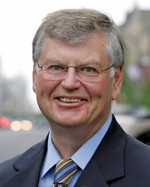There is a phrase that has come into prominence in recent months as the increasingly bizarre antics emanating from the White House confound people.
The term is "Speaking truth to power". It means people who have the courage to speak bluntly and honestly to people who hold high office. A review of history reveals that that practice, it must be noted, has not always worked out well for the truth-tellers, as various beheadings (literally and figuratively) over the centuries have proven.
While it is impossible to escape the lies, obfuscations and fawning drivel that emanates from the current Washington political scene and which is repeated in many capitals around the world from Moscow to Pyongyang it is also important to understand that the same important principle of truth and honesty applies to city and town halls across Canada.
Whether it is a staff member presenting a report that runs counter to a mayor's or councillor's strong views, an elected councillor standing up to a domineering mayor, or even a member of the public taking an unpopular stand at a public meeting, it is important for elected people to hear different opinions. There is often truth and reality in those points of view.
I have been seeing a rising pattern recently that concerns me greatly: people only seeking to see, hear or view ideas that are similar to their own. The great divide that we see now in the United States and some other countries is buttressed by the public's narrowing view of life, politics, the world and their place in it. If you only get opinions and commentary that supports your limited piece of the planet, how can new or different or maybe even better ideas ever penetrate?
When city councils make zoning decisions or approve new plans for a greenfield site or a large chunk of property, they are determining the future for a neighbourhood for decades to come. When the council talks about changing the form of local governance and how people are elected, they are making big decisions affecting the future of local democracy in their city. When they make decisions on housing, transportation, technology, policing, social policy, neighbourhood development and so many more important parts of community living, they are impacting families and neighbourhoods for generations.
Very few decisions at a council meeting are unanimously supported by everybody in a city. That is the nature of making decisions lots of them are very tough. It is important to hear wide-ranging views because that usually results in better decisions. It is also important at some point to stop the debate, make the decision and move on.
With great power in office comes great responsibility. It is just not good enough in this day and age to play only to one's electoral base. Once elected you have a much wider and greater obligation--to your city or to your nation.
To hear dissenting voices and to have advisors who will cut through the babble is a most important attribute of great leaders.
Speaking truth to power takes courage and strength. It is not always welcomed by political bosses. But, that attribute can be one of the most valuable traits in the corridors of power. Before words can be heard, they must be spoken.














